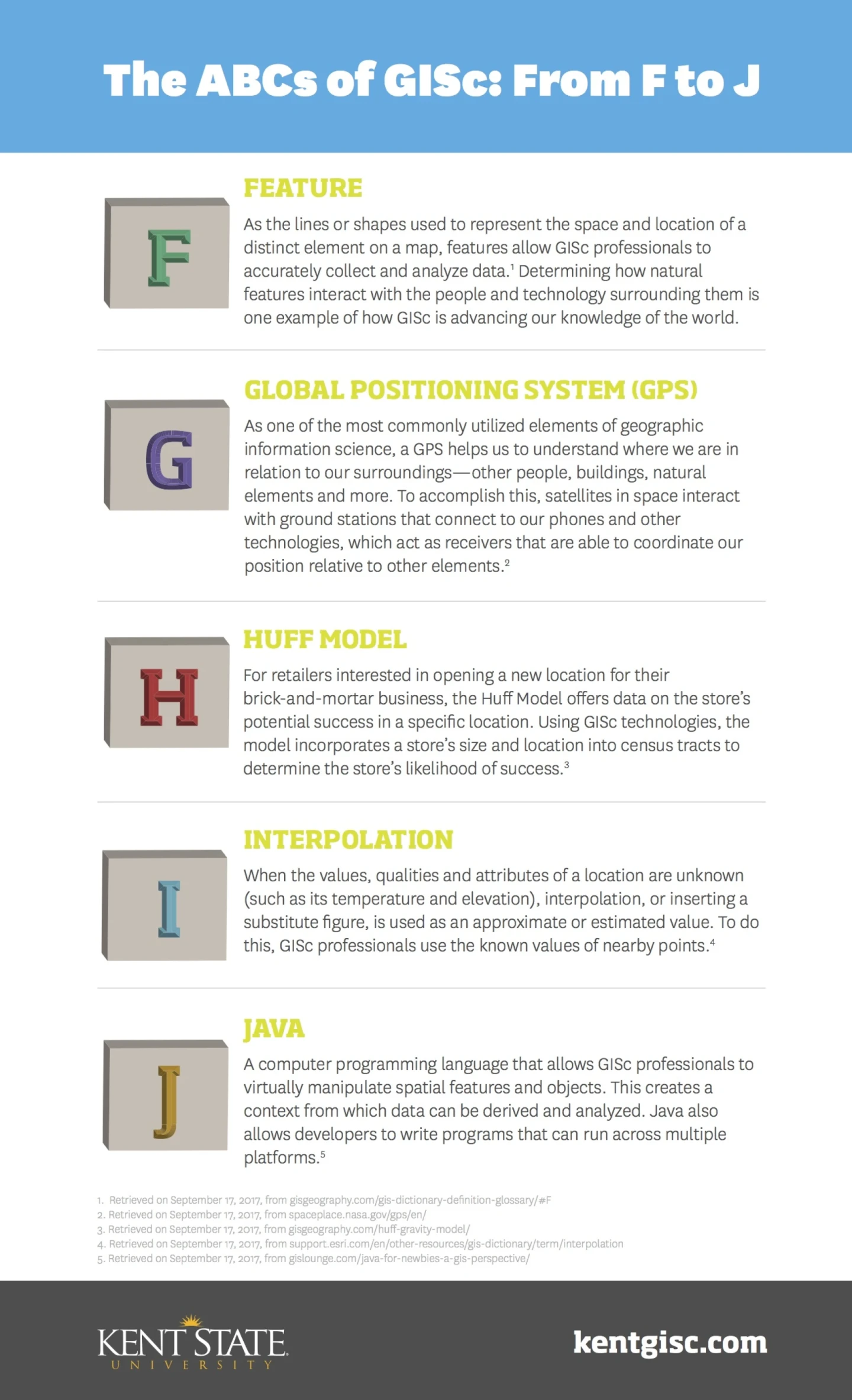Defining the Terminology of Geographic Information Science
Every profession has a lexicon, turns of phrase that are unique to its processes and techniques. The world of geographic information science (GISc) is no exception.
In fact, due to the amount of nuanced technology and innovation that practitioners in the field rely on, professionals interested in a GISc career must familiarize themselves with the terms that live at the heart of the industry.
Below is part two of a five-part series, defining a key GISc term for each letter of the alphabet, which can serve as a good starting point and help you pursue further knowledge.
Now that you’re developing a greater familiarity with GISc terminology, you may want to expand your knowledge even further. If your curiosity and passion for geography has been sparked, you may be ready to consider an online master’s degree in GISc.
If you missed part one of this series, be sure to catch up by reading GISc terms A to E, or learn more about what it takes to be a GISc professional.





